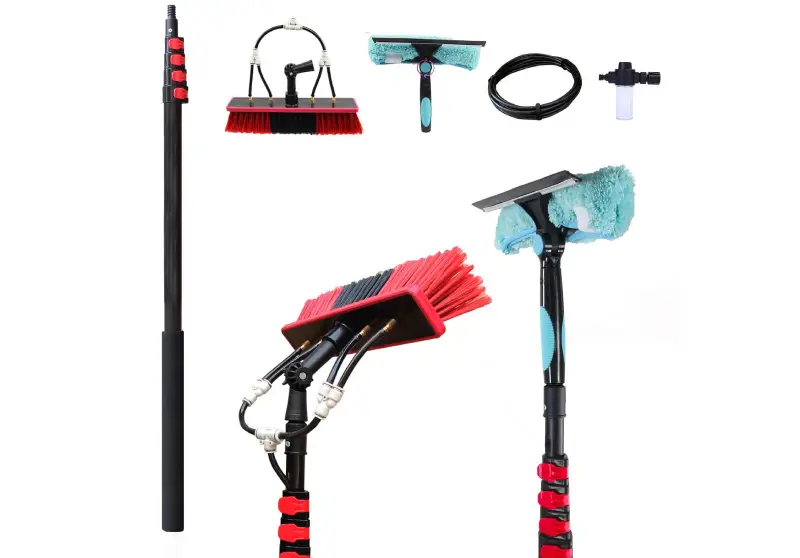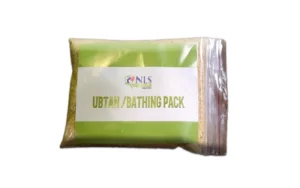The Ultimate Guide To Solar Panel Cleaning Equipment
In the contemporary era of renewable energy, solar power stands out as one of the most promising solutions to combat climate change and reduce reliance on fossil fuels. As solar energy continues to gain traction, ensuring the optimal performance of solar panels is paramount. One often-overlooked aspect of maintaining solar panels is cleaning, which directly impacts their efficiency and longevity. In this comprehensive guide, we delve into the world of solar panel cleaning equipment, exploring its importance, functionality, selection criteria, maintenance practices, safety considerations, and environmental implications. Whether you’re a homeowner, a solar panel installer, or a maintenance professional, understanding the nuances of solar panel cleaning equipment is essential for maximising energy production and minimising costs over the long term.
Investing In The Right Solar Panel Cleaning Equipment
Investing in high-quality solar panel cleaning equipment is crucial for ensuring effective maintenance and optimal performance of solar energy systems. The market offers a plethora of options, ranging from simple cleaning brushes to advanced robotic systems. When selecting cleaning equipment, factors such as panel type, location, accessibility, and budget must be carefully considered. While cost-effectiveness is essential, prioritising quality and reliability can prevent damage to panels and maximise efficiency, ultimately yielding greater returns on investment.

Efficiency Boost: How Solar Panel Cleaning Equipment Works?
Solar panel cleaning equipment employs various mechanisms and technologies to remove dust, dirt, and other contaminants that accumulate on panel surfaces over time. From manual cleaning tools like brushes and squeegees to automated solutions such as water-fed poles and robotic cleaners, each method has its advantages and limitations. Understanding how different cleaning equipment works allows users to choose the most suitable option for their specific requirements, ensuring thorough cleaning without compromising panel integrity or efficiency.
Choosing The Right Tools: Essential Solar Panel Cleaning Equipment
Selecting the right tools for solar panel cleaning is essential for achieving optimal results while minimising the risk of damage. Basic equipment such as soft-bristle brushes, non-abrasive sponges, and gentle detergents are commonly used for manual cleaning, particularly in residential settings. For larger installations or inaccessible panels, water-fed poles equipped with purified water systems offer a convenient and effective solution. Additionally, advanced technologies like robotic cleaners and automated drones are becoming increasingly popular for commercial-scale operations, providing efficient cleaning with minimal human intervention.
Maximizing Longevity: Maintenance Tips For Solar Panel Cleaning Equipment
To prolong the lifespan and effectiveness of solar panel cleaning equipment, regular maintenance and proper handling are essential. Cleaning tools should be inspected for damage, wear, and cleanliness before each use to prevent scratching or contaminating panel surfaces. Storage in a clean, dry environment and adherence to manufacturer guidelines for maintenance and servicing are also crucial for ensuring equipment reliability and longevity. By implementing proactive maintenance practices, users can optimise the performance and efficiency of their cleaning tools, maximising their investment in solar energy.
Safety First: Guidelines For Using Solar Panel Cleaning Equipment
Safety is paramount when using solar panel cleaning equipment, particularly when working at heights or with electrical systems. Proper training, equipment inspection, and adherence to safety protocols are essential for minimising the risk of accidents or injuries. When using water-fed poles or pressure washers, precautions must be taken to prevent electrical hazards and ensure structural stability. Additionally, personal protective equipment (PPE) such as gloves, safety glasses, and non-slip footwear should be worn to protect against falls, cuts, and chemical exposure. By prioritising safety at all times, users can mitigate risks and promote a secure working environment.
Diy Vs. Professional Cleaning: Pros And Cons Of Solar Panel Cleaning Equipment
The decision to clean solar panels manually or hire professional cleaning services depends on various factors, including cost, convenience, expertise, and scale of the installation. While DIY cleaning may be more economical for small residential systems, larger or commercial installations often benefit from the efficiency and expertise of professional cleaners. DIY enthusiasts can save money by investing in basic cleaning equipment and performing routine maintenance themselves, but may lack the specialised tools and skills required for thorough cleaning or hard-to-reach areas. Conversely, professional cleaners offer comprehensive services, including equipment maintenance, safety compliance, and performance optimisation, albeit at a higher cost. Ultimately, the choice between DIY and professional cleaning depends on individual preferences, resources, and priorities.
Environmental Impact: Sustainable Practices In Solar Panel Cleaning Equipment
As the demand for renewable energy grows, so does the importance of sustainable practices in solar panel maintenance. Traditional cleaning methods involving harsh chemicals or excessive water consumption can have adverse environmental impacts, including water pollution and resource depletion. To mitigate these effects, eco-friendly cleaning solutions and techniques are gaining popularity, emphasising the use of biodegradable detergents, low-pressure water systems, and water recycling technologies. Additionally, solar panel cleaning equipment powered by renewable energy sources such as solar or wind further reduces carbon emissions and promotes environmental stewardship. By adopting sustainable practices in solar panel cleaning, individuals and organisations can minimize their ecological footprint and contribute to a cleaner, greener future.
Conclusion
In conclusion, effective maintenance of solar panels is essential for maximizing energy production, prolonging equipment lifespan, and minimising environmental impact. Solar panel cleaning equipment plays a crucial role in this maintenance process, offering a wide range of tools and technologies to suit various applications and preferences. By investing in the right cleaning equipment, adhering to safety guidelines, and implementing sustainable practices, users can ensure the long-term performance and sustainability of their solar energy systems. Whether opting for DIY cleaning or professional services, prioritising quality, efficiency, and environmental responsibility is key to unlocking the full potential of solar power and paving the way for a brighter, cleaner future.

Fran Peters is a dedicated writer specializing in health and medical content. With a background in healthcare and a passion for helping others lead healthier lives, Fran brings a wealth of knowledge and expertise to her writing.















Post Comment